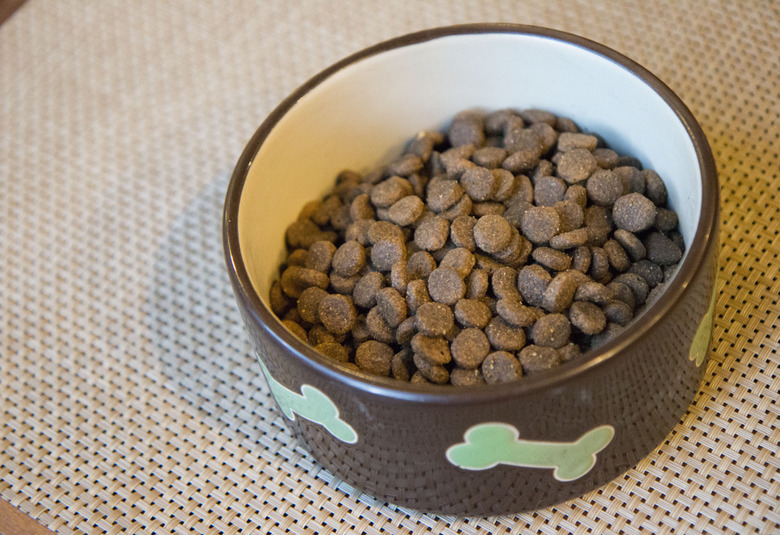Diet For Dogs With Cushing's Disease
Cushing's disease can be missed in middle-aged and older dogs, as many of the signs can occur with aging. You might notice your dog has a pot-bellied appearance and thinning hair. He might seem thirsty and have to urinate frequently. As there are different types of Cushing's disease, veterinary care is imperative to make sure your dog gets the proper treatment. While traditional veterinary care for the disease focuses primarily on medication, your veterinarian also may make recommendations to support your dog's wellness through changes in his diet.
Making the Change
Making the Change
While a healthy dog may do just fine on commercial dog food, a dog with Cushing's may have a difficult time with it. Corn and other grains frequently make up the bulk of commercial food, and overloading your dog's system with these ingredients can exacerbate both forms of the disease. Holistic veterinarian Dr. Lena McCullough of Seattle, Washington recommends eliminating grains and as many carbohydrates as possible from diets of canine Cushing's patients. Some dogs — such as those who are undergoing cancer chemotherapy or radiation — need cooked foods until they complete treatments.
Sample Raw Meals
Sample Raw Meals
On her website A Path with Paws, McCullough recommends 1.5 cups of raw meat per day for a 40-pound dog, and your vet will recommend the appropriate amount for yours. Add a quarter-cup of sweet potato, pumpkin or yam to the chopped meat and up to a cup of vegetables. Top your dog's mix with a raw egg, 2 teaspoons of yogurt containing live bacterial cultures and 1/8 cup of nuts. Freeze the raw meat for a minimum of 48 hours to kill any parasites that may be living in the meat. Always cook pork and fish before serving them to your dog.
Ready to Eat
Ready to Eat
If you prefer to buy ready-made food, consider a grain-free commercial raw food. You'll find a variety of flavors available on the market from beef, chicken or lamb to venison, rabbit or buffalo. The raw meat is freeze-dried and combined with fruits and vegetables, and contains omega-3 and omega-6 fats to help restore your dog's coat. Probiotics included in the food aid in digestion, helping your dog absorb nutrients and reduce his bloated look. The foods come in various forms including freeze-dried kibble, patties, medallions and tubes of soft food.
Supplemental Nutrition
Supplemental Nutrition
Your veterinarian may recommend other supplements to support your dog's health. McCullough recommends adding a teaspoon each of cod liver oil and a calcium supplement such as bone meal powder. She also notes that using ginkgo biloba may slow the release of the hormones from the adrenal glands that cause the disease. Be sure to consult your veterinarian before adding supplements or any other dietary changes, as they can impact how much medication your dog absorbs. Call your veterinarian immediately if your dog has digestive upset or becomes lethargic.
Always check with your veterinarian before changing your pet's diet, medication, or physical activity routines. This information is not a substitute for a vet's opinion.
